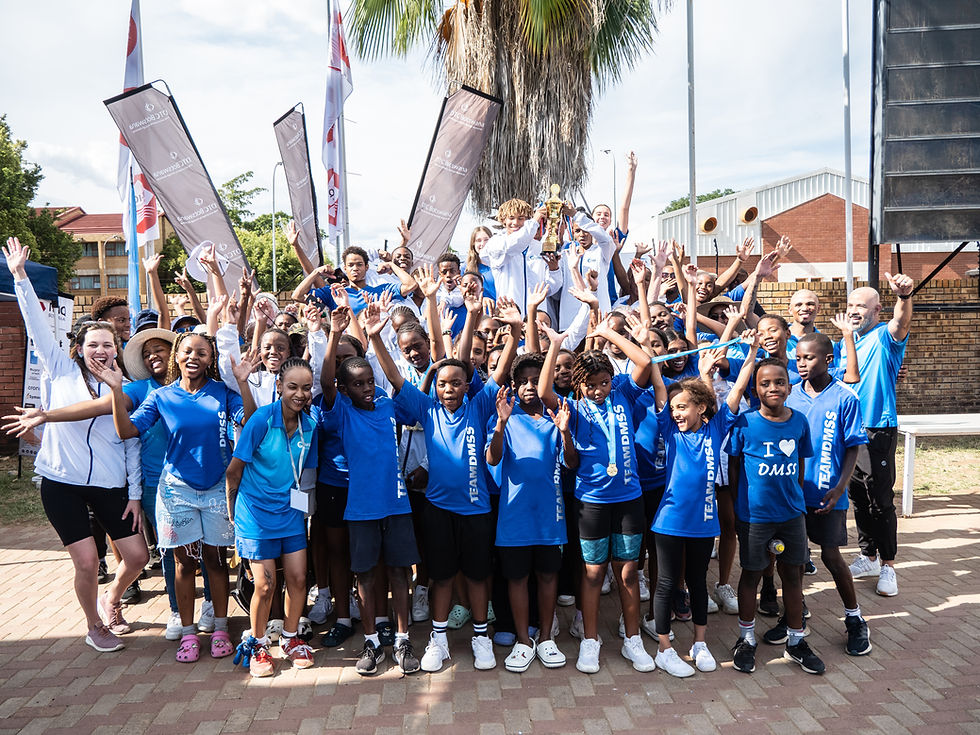When A Swimmer "Plateau's"
- DMSS Swimming

- Apr 28, 2023
- 3 min read
Imagine a swimmer who joins DMSS at squad level - she is part of a group of swimmers that receive good stroke work, aerobic conditioning work, and constant encouragement, but not special attention. Her parents are new to swimming and quietly enjoy their daughter's enthusiasm. She makes immediate and substantial improvement.
However, suddenly and quite unexpectedly, her improvement subsides. In fact, in some events her times go slower. Her parents become concerned and ask us for advice.
Here are our thoughts about this situation.
1. A swimmer is said to "plateau" when his or her times no longer continue to improve. This is quite normal in any swimmers career.
If there is a typical "plateaued" swimmer it is a girl between the ages of 13 and 15. Girls grow and improve fast at 12 years and under. Often times girls are faster than boys in the same age group. But as girls physically mature, gain weight on their hips and breasts, their rate of improvement slows and may stop altogether.
If a boy plateaus, it generally happens in the late teens when most of his growth and strength gains have been made.
Although younger age group swimmers (12 and under) rarely plateau simply because they are growing rapidly and their increased strength generally results in faster times, at times, this can happen. To correct strokes we may teach swimmers to ’slow down’ before they ‘speed up’ and this may result in a slower time in the immediate.
At other times, a child might simply become more interested in other activities.
2. In all these situations, it is best to have a change in focus which takes pressure off the swimmer to improve. After a time of redirected interest a swimmer can often come back and improve. For example, we can expose them to a variety of events to work on at a gala when one or more events aren't improving. Or we might focus on other aspects of their performance - better stroke length, stroke control, or race strategy.
3. Avoid making the swimmer or the “plateau” the center of attention. This might seem to be an ideal arrangement for a swimmer to improve but often times it has the opposite effect. When a swimmer receives extraordinary attention they are under subtle (and sometimes not so subtle) attention to perform well. When they cannot perform well, which will happen from time to time with every swimmer, they fall under even greater pressure. It is ok for a swimmer to fade into the workout group for a while and just be part of the crowd.
4. Avoid the "grass is greener" syndrome. It is common to hear of swimmers who make dramatic improvements over several years, then appear to stall, and then jump to another club. When a swimmer plateaus, communicate with the coach and take a careful look at the program before deciding to move to another club. Often times there are factors beyond the immediate control of the coach and program that are contributing to stalled performance and might be resolved with good communication.
Consider how the child improved to this point in the first place. The act itself of moving to a new club could become translated, "Now that you're with this new team it is expected that you will again improve", thus adding additional pressure.
5. Finally, use positive encouragement. Encouragement helps build a child’s confidence and autonomy. Focus on the child’s effort, not the product. This will allow them to “own” their accomplishments and to find within themselves the strength and desire to do their best. This is after all the ultimate end goal.
Yours in swimming,
DMSS





Comments